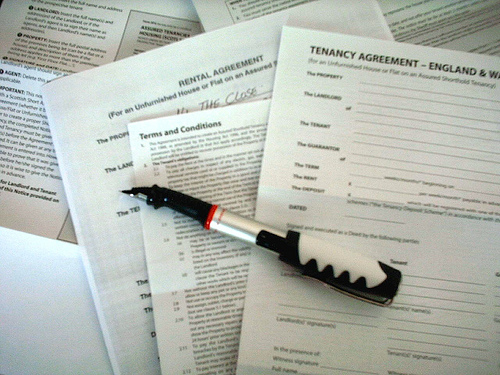
The Official Code of Georgia § 13-4-101 explains the elements and requirements of what is known as “accord and satisfaction.” Accord and satisfaction happens when two parties to a contract, by a subsequent contract, have satisfied the first previous contract, and the subsequent contract has been executed.
What does this mean in simple, plain English?
Well, there are two parts to this law. In a nutshell, the execution of this new, second agreement may amount to a satisfaction of the first, older former contract for two reasons:
1. First, where it is so expressly agreed by the parties (both people state so); or
2. Second, if there was no such agreement to satisfy the first contract, if the new promise is founded on a new consideration (a promise to do something like pay money), the taking of it is a satisfaction of the former agreement.
Here is a good and easy example to understand what it means:
What if I had a contractual agreement with my Uncle Bob that I would hire him to build me a backyard shed for $30,000? Uncle Bob and I agree that I will pay him $10,000 to start the project and $5000 at the end of each week until he is finished.
Unfortunately, during the course of the shed building, Uncle Bob starts drinking again and can barely pick up a hammer to nail a board in straight. The shed turns out completely lopsided and crooked. I tell Uncle Bob that there is no way I am paying him $30,000 for this shed that looks like the leaning tower of Pisa. So, Uncle Bob and I make a new agreement, subsequent from our first contract where I pay him $20,000 rather than the $30,000 I originally promised him.
What is the consideration in this new subsequent agreement? The consideration is that for a $10,000 savings, I gave up what I was entitled to: a well-constructed shed. Uncle Bob gives up his right to full price to avoid being sued for a shoddy performance. Once accord and settlement has occurred, Uncle Bob and I have given up the right to sue for more money under this settlement agreement.
Months later when Uncle Bob is back on the wagon, can he sue me for the $10,000 I was supposed to pay him from the first contract? Can I sue him because I am still mad about the ugly crooked eyesore in my backyard? No! Accord and satisfaction has occurred.
As the Georgia courts have ruled: “Accord and satisfaction is an agreement between two parties to give and accept something in satisfaction of the right of legal action which one has against the other, which when performed is a bar (a blockade) to all actions on this account. Woodstock Rd. Inv. Properties v. Lacy, 149 Ga. App. 593, 254 S.E.2d 910 (1979); M.W. Buttrill, Inc. v. Air Conditioning Contractors, 158 Ga. App. 122, 279 S.E.2d 296 (1981).
Have more questions? Read more here and consider contacting us today to schedule an appointment.
Continue reading →
 Georgia Injury Lawyer Blog
Georgia Injury Lawyer Blog




 The Official Code of Georgia § 13-2-2 sets out “rules for interpretation of contracts generally.” The law states that the following rules, among others, shall be used in order to arrive at the truthful interpretation of a contract. This means if you are having a business dispute with your partner, vendor, tenant, or another company and a question turns on what the contract between you two actually means or whose version (yours or theirs) interprets the contract correctly, consider the following rules:
The Official Code of Georgia § 13-2-2 sets out “rules for interpretation of contracts generally.” The law states that the following rules, among others, shall be used in order to arrive at the truthful interpretation of a contract. This means if you are having a business dispute with your partner, vendor, tenant, or another company and a question turns on what the contract between you two actually means or whose version (yours or theirs) interprets the contract correctly, consider the following rules:  Many commercial contract agreements have provisions for attorney’s fees in the event one party breaches the contract. The question is: what does Georgia law say about collecting attorney’s fees from a contract? The Official Code of Georgia Annotated law, O.C.G.A. § 13-1-11, talks about the validity and enforcement of obligations to pay such fees.
Many commercial contract agreements have provisions for attorney’s fees in the event one party breaches the contract. The question is: what does Georgia law say about collecting attorney’s fees from a contract? The Official Code of Georgia Annotated law, O.C.G.A. § 13-1-11, talks about the validity and enforcement of obligations to pay such fees.